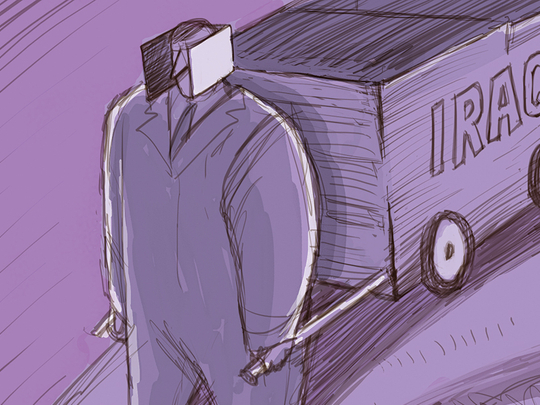
When the Iraqi state fell to the American invasion in April 2003, people who were keen on the future of Iraq hoped that the political elite would bring about a change. The elite, who came to power at the national level, and emerged in the professional sphere, had to tackle two key tasks. The first was rebuilding the Iraqi state along modern and civil foundations; the second was to repair disintegrating relations at the social level.
Twelve years have passed, and now it is clear that efforts exerted to achieve these changes have been inadequate. The only explanation for this failure is that the interests of these political elites are upheld as long as the current situation of disintegration and dispersion remains unchanged, because this perpetuates the influence and interests of sectarian, provincial and tribal leaders, who are represented by these political elites.
Iraq is a country that has an abundance of technological and educational capabilities that new leaders can rely on in order to achieve the aforementioned goals. Many Iraqis, who had immigrated to various parts of the world, returned to contribute to the rebuilding process in their homeland. However, many of them were disappointed to learn that it was quite difficult to do so due to mechanisms that don’t allow intellectuals and independent-minded individuals to thrive, despite the capabilities they possess. These mechanisms only allow for the contribution of those who are affiliated to parties that control state institutions.
Iraqi politicians have never viewed the nation as a legal entity belonging to the people, as a means to provide vital services or regulate relations between citizens as per the constitution approved by the public. There is no individual, party or sect that has the right to control the country or some of its institutions.
Prior to 2003, the regime had full control over all state institutions. The country belonged only to one party. After 2003, the regime did not relinquish control despite the fact that ownership was divided among the elite who participated in the political process. Non-governmental organisations were also not safe from the control of the regime. This resulted in a decline in living standards and marginalisation of the role of education, which had been a source of unity and the forging of national identity.
There seems to be a determination to exclude intellectuals who are concerned about the nation and its future. Education is a valuable addition and an effective tool in developing individual talents, steering the thoughts of groups and people, as well as highlighting the strength of a community and its drive towards reforms, which is exactly what a politician needs. An educated person does not sing praises of a ruler. That is because an educated individual is a positive soul who always looks towards progress, and the future of the nation. An educated person does not need a politician as much as the politician needs him. The politicians, however, have proved that they do not really understand their own needs.
Ideological framework
Undoubtedly, education plays a prominent role in making a politician successful, not only because it is a source of knowledge, but it’s also closely related to life itself. Education prompts a politician to understand the ideological framework that shapes the present at a local, regional and international level, allowing him to control it and pave his path towards the future.
It arms him with a vision that is comprehensive to an extent, which is what he requires, particularly when facing situations that need to be resolved using unconventional vision. Such a vision is inspired by cultural diversity, as well as the experiences of various reform movements and nations that have achieved progress and high standards of living. Education plays a leading role in the development of a society in all fields. An intellectual, however, has no say in the public discourse pertaining to the current state and future of the nation. After all, nobody is willing to listen to what they have to say because it is the leaders of sectarian parties, not politicians, who define the key features of the political process.
A politician’s reclusive mentality is part of a narrow-minded vision that isolates them from their surroundings. It also makes them disinterested in changes in thought and global practices pertaining to politics, society and values that benefit and serve the people, and are suitable for society and the ruling regime. Keeping abreast of changes and new developments is no longer an option; it is a must, particularly given the prevailing situation in Iraq.
The most prominent characteristic of the ever changing lifestyles is that it leads to the emergence and consolidation of an unforeseen deterrent force in the social fabric of the country. It makes all components of society voluntarily less inclined to strive towards disseminating their own beliefs, and engaging in conflicts because of them.
When politicians are in a position to make decisions, their responsibility grows, particularly when they are facing crucial issues related to peace and unity. Adopting a narrow-minded stance and making decisions that that are based on such a stance will not lead to politicians harming themselves on a personal level as much as it will harm society.
Mohammad Akef Jamal is an Iraqi writer based in Dubai.








